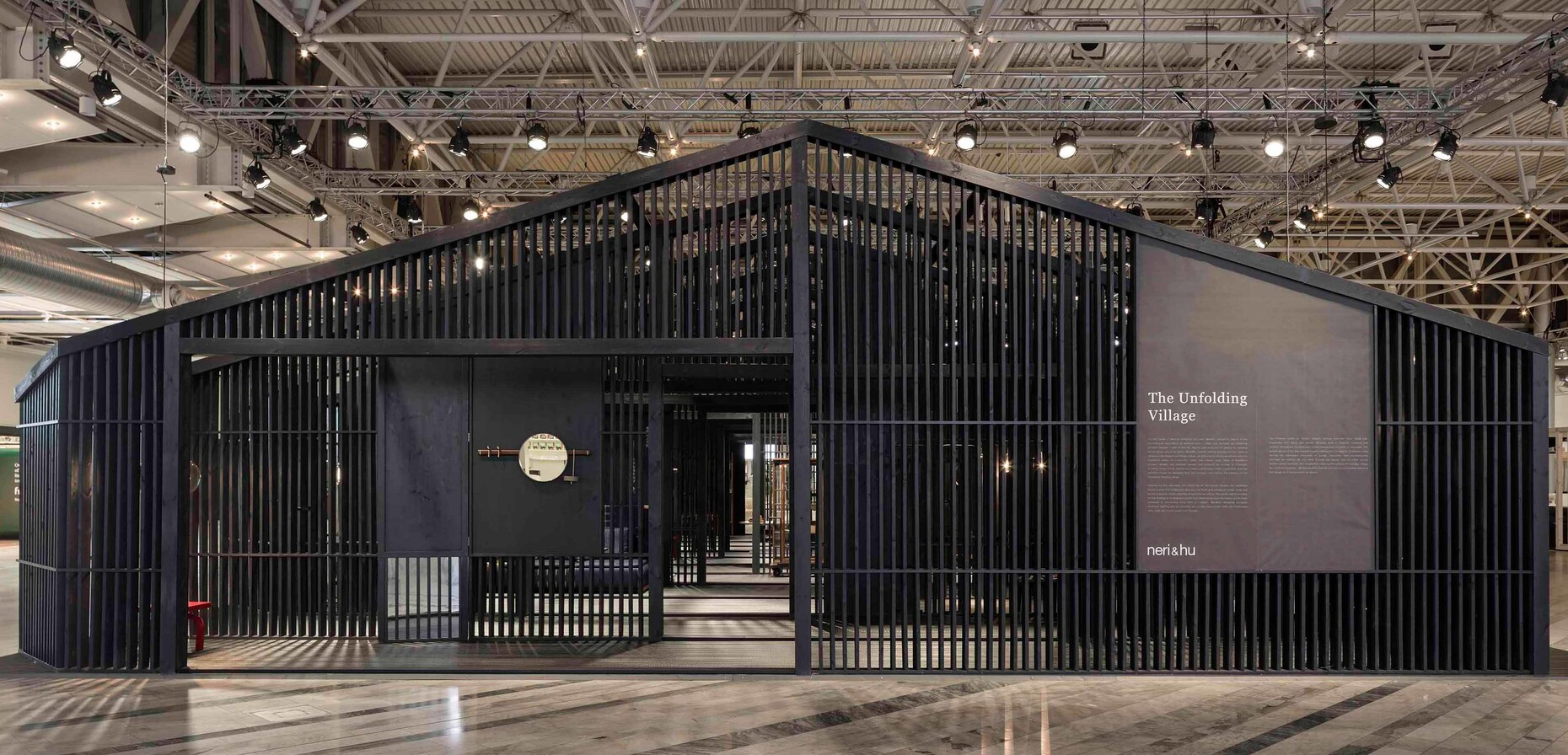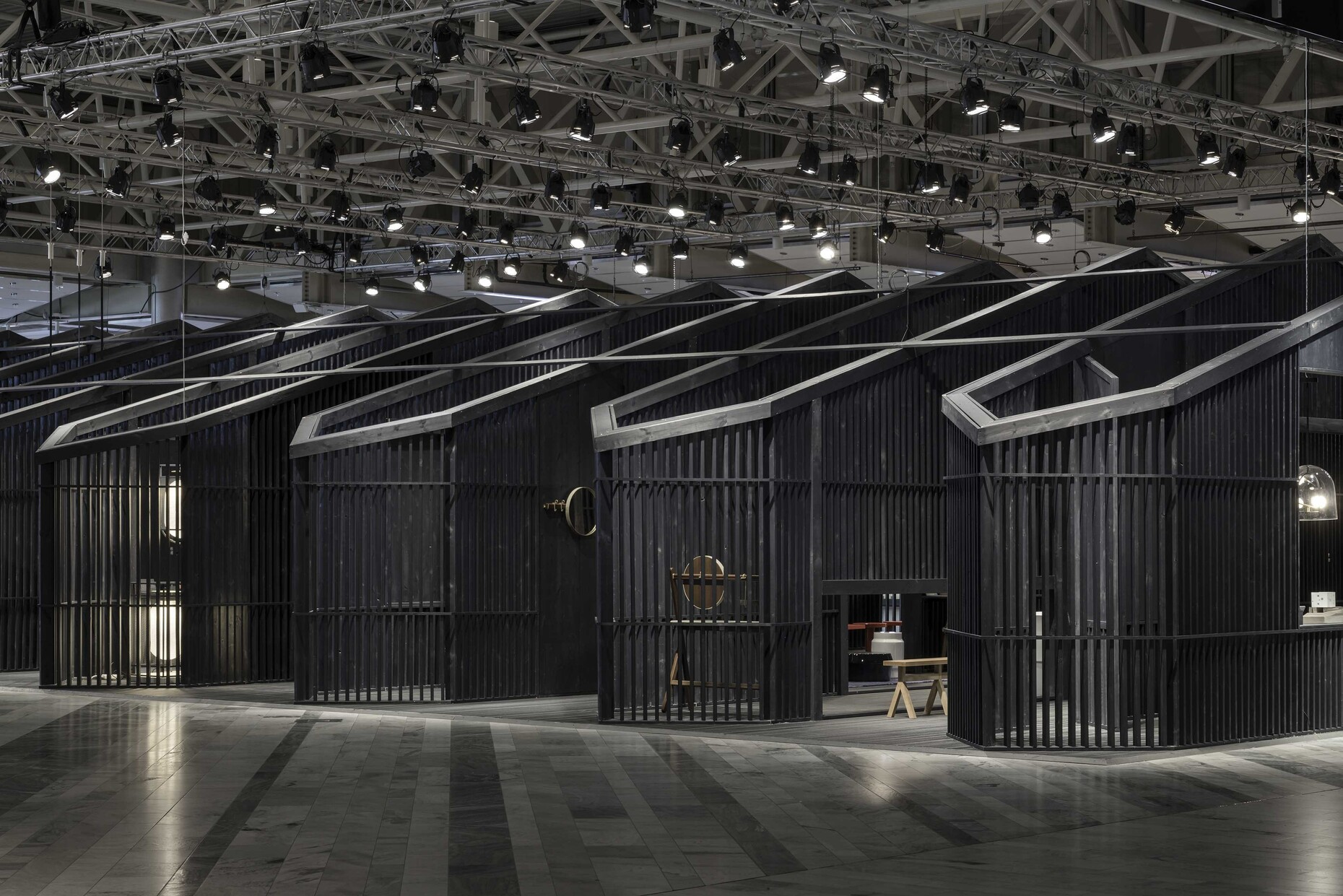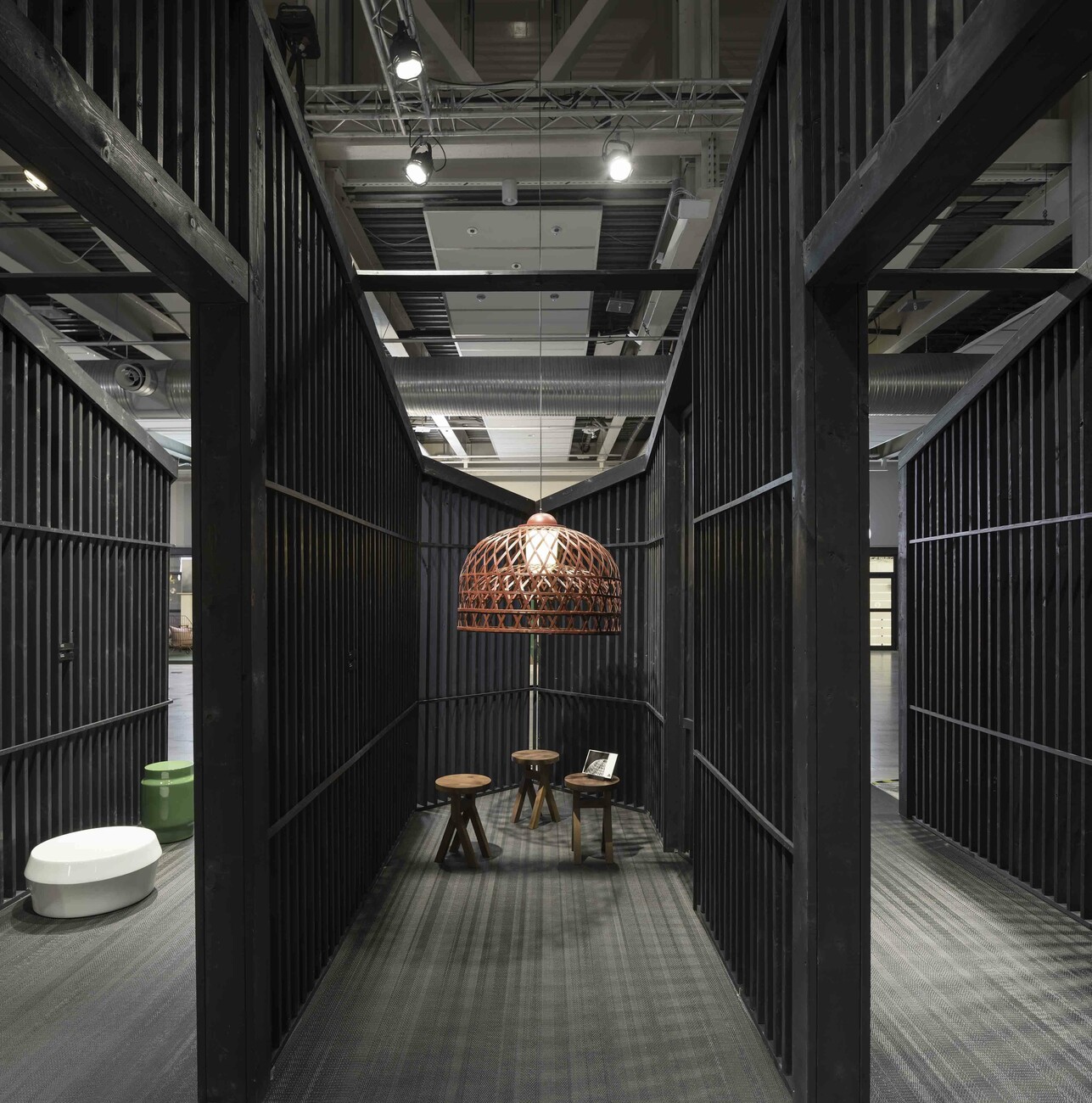Stockholm Furniture & Light Fair 2019
The strength of contrast
Anna Moldenhauer: Why do you feel the traditional village is so important for modern society?
Rossana Hu: For years we have addressed the idea of nostalgia and what history means for us as contemporary designers. People and governments in particular tend to strictly compartmentalize old buildings: One is considered valuable and worthy of preservation, the other simply gets torn down. That said, anyone who wants to make progress must also look at the past as a whole; we need a culture of remembering. If we lose our past, our heritage, then there is no continuity, no recollection that defines who we are. And then we not only lose the buildings of the past but also our culture and consequently ourselves. It is not about turning everything into Disney, not about recreating something exactly as it once was. It is more about using nostalgia positively so as to breathe new life into something old in future buildings. Doing anything else results in a loss of identity. And that not only applies to China but to every country undergoing rapid modernization.
Lyndon Neri: We are not nostalgic for the sake of nostalgia. The most important thing is to understand the strength of these villages. The open typology, the blurring between public and private space, between inside and out. It produces a sense of community. It is the opposite of life in involuntary isolation. This interaction is vital if the community is to remain vibrant and grow. Naturally, progress is hugely important but when creating new structures makes sense to be inspired by rural fabric and to transfer its positive characteristics to urban structures. The human aspect should not be lost in the process of mechanization. People living in modern societies wants to feel happy in their homes and not simply live in concrete boxes.
When I think of a village I think of communication, both desired and undesired, things being easy to reach, community. In the city I hardly know my neighbors even if we’ve lived door-to-door for years. There is rarely any communication. You also see it as a task of modern architecture to foster interpersonal communication again?
Rossana Hu: Yes, space can shape behavior, produce both negative and positive cultural patterns. It is vital for a place to have a feeling of community. And if you create spaces in which people feel as if they belong then you are also creating meaning for them.
Lyndon Neri: Unwanted isolation has a negative impact on a person’s character. Unfortunately, today profit is the main concern of many clients who have soulless high-rises constructed. Vertical tombstones. The people that buy such apartments are hardly ever there. They want an investment asset, not a place to live in. This is a highly precarious situation. Our behavior has already changed to the extent that we live in a bubble and a virtual world of sorts, and our social contacts take place with fictional characters via social media, rather than our seeking communication in the real world.
This is the crux: The more people there are in a place the less communication.
Lyndon Neri: Yes, but that is precisely what is happening in our society today, we literally live in what Rossana would call soulless ghost towers.
How can architecture counteract this development?
Lyndon Neri: I think it is important to see the bigger picture and understand it as a whole. We need to consider spatial consequences and not think our work is done by simply installing a small restaurant right next to a high-rise building. Our concept needs to also consider local inhabitants’ quality of life, and how we can foster interaction between people through the architecture itself. That is not always easy but we do try.
Details play a large role in your work. What details were important to you in designing “The Unfolding Village”?
Lyndon Neri: Details and perfection are important but the core statement of a project is equally important. Every layer is important for us, from the base through to completion. And also, the conceptional ideal. That was also the case for “The Unfolding Village”. If you only concentrate on one part of a project it does not work.
I was somewhat surprised by the black color of the wood in the installation. The black exudes a sense of calm, you automatically walk more slowly when you enter the installation. What made you opt for black?
Lyndon Neri: Light-colored timber would have been too obvious. We wanted an abstraction that connects the outer side and the interior. You can still recognize the texture of the wood but staining it allows the village’s typology to develop more clearly.
We are smack bang in the middle of Scandinavian chic, which is highly popular in Germany. How do you rate Scandinavian design from your vantage point in Shanghai?
Lyndon Neri: I think the Scandinavian movement is very important. Previously China associated good or luxurious design primarily with Italy and France. Now Scandinavia offers a different approach: Simple, natural materials, clear lines and light colors. Timeless design. Early on that seemed to many Chinese people like a more expensive version of IKEA, but that idea has altered over time. And doubtless one reason for that is that our own aesthetics is very close to Scandinavian design, which is important as a counterweight to loud conspicuous designs.
You set up the Studio Neri&Hu in 2004 and have an interdisciplinary approach to work. How do you divide up your work?
Lyndon Neri: Rossana is highly focused. Her actions are considered, she is critical and disciplined. She makes sure a concept is well thought through, that the design process is thorough. By contrast, my thoughts are more scattered, I change the design every couple of days, sometimes every couple of hours and always have several plans in my head at once.
Rossana Hu: We don’t have a strict splitting of tasks, everything happens in an open, flowing manner. We work closely together and complement each other well. The system works precisely because we are so different.
What project would you still love to tackle?
Rossana Hu: We have yet to design a school.
Lyndon Neri: Or an orphanage.
Rossana Hu: It would be exciting to find a new design and typology for them.









